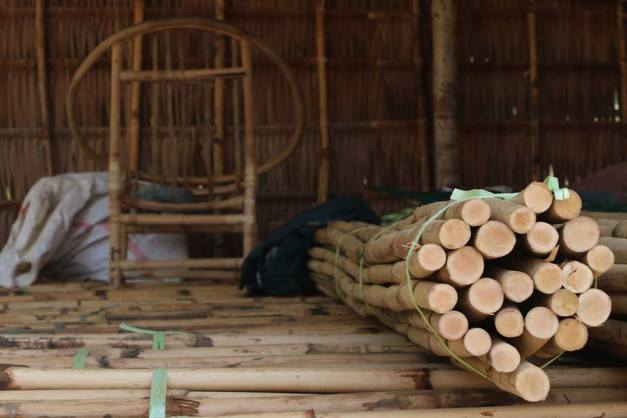Good Governance is Key to Community Forestry

My grandparents in Scotland would often give me a concerning look and ask me the same two questions when I would visit: 1. Where was I working? and 2. What work do I do?
After seven years, I can once and for all answer their questions! Recently, RECOFTC published a series of policy briefs under the EU funded Voices for Mekong Forests (V4MF) project, which gives me the perfect opportunity to put these questions to rest!
Question 1: Where do I work?
Simply put, I work at RECOFTC – The Center for People and Forests. Our goal? To support rural communities in the Asia-Pacific region to manage their forests. This is based on the understanding that local communities know the forests the best, depend on the forest the most, have proven to be the most effective managers and have rights to their forests.
This sees us working with government and non-government organisations to ensure firstly that the laws are in place to support these communities and that the communities themselves, as well as staff from government and non-government organisations, have the capacities to make sure the rural communities can benefit from their forest landscapes, today and for future generations.
Now on to Question 2: What work do I do?
One of the key areas of my work is under the V4MF project, working on creating a supportive legal environment, but also working to strengthen governance.
I suppose the best way to explain it is to imagine a family in, for example, Myanmar that are trying to make a living, like their parents and their grandparents, from their land, including forests.
Where there is good governance, they will have clear ownership of their land, they will know what they are allowed by law to do regarding collecting non timber forest products such as mushrooms and branches for their cooking stove, as well as cutting down trees and selling them. By having this clarity they will invest time and money in their land and they will also protect it. With the right resources they can potentially make a good living from their land.

Now consider if governance was weak. If they didn’t have a piece of paper clearly stating they owned the land, imagine if they have heard of other families in the area losing their land to companies, consider the possibility that due to this uncertainty they are unwilling to invest in their land. The likelihood of them making a decent living from their land is very limited.
The list below provides a summary of how components of good governance can impact community forestry.
Good forest governance principles: Importance for community forestry (CF)
- Accountability: Clear responsibility for actions regarding management of the community forest
- Effectiveness: Management of CF meets needs of local community, especially CF members
- Efficiency: Maximal use of human, financial and other resources without unnecessary waste or delay
- Equity/Fairness: Equal opportunities for all CF members to improve or maintain their wellbeing, including application of rules in an impartial manner
- Participation: Involvement of CF members and non-members in decision-making, either directly or through legitimate representatives representing their interests
- Transparency: Clarity and unrestricted flow of information enabling all CF members and other stakeholders understand and monitor management of the CF
As part of my work at RECOFTC we have been assessing the state of forest governance in the Greater Mekong Subregion – namely Cambodia, Lao PDR, Myanmar, Thailand and Viet Nam. Working with project partners we have been asking staff from government and non-government organisations of their perception of forest governance in the region and getting their ideas of how to address the challenges and opportunities identified. This has allowed us to develop a program to support the creation of a stronger legal foundation, including for supporting community forestry, and develop the skills and knowledge of key actors, including staff from government and non-government organisations so that we are all working towards improving forest governance in the region.
The English language versions of the briefs can be found here.

